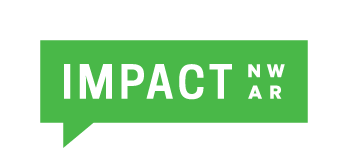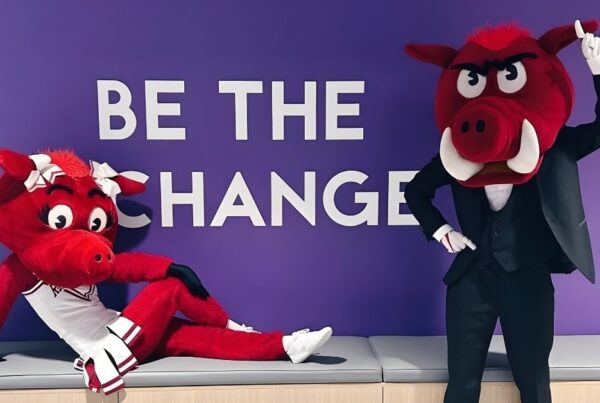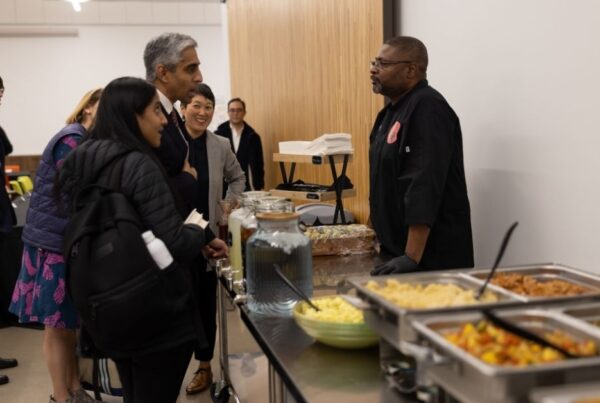The Beaver Watershed Alliance (BWA) works to proactively protect, enhance, and sustain the high water quality of Beaver Lake and its tributaries through voluntary best management practice implementation, outreach and education, and scientific evaluation. BWA is a nonprofit formed of a diverse stakeholder group representing agricultural, recreation, conservation, water utility, business, and private landowner perspectives who all work together for the benefit of Beaver Lake and its watershed.
The Alliance was established in 2011 and has a US Environmental Protection Agency approved Watershed Based Management Plan, also referred to as the Beaver Lake Watershed Protection Strategy (BLWPS), which sets forth the core practices for protecting the Beaver Lake watershed. The BLWPS was initiated by the NWA Council and was the first plan to be accepted in the state of Arkansas.

BWA works with local, state and federal partners to accomplish goals to protect the watershed. One example of a partnership success story for the watershed includes the work between landowners and local partners to reduce sediment loads in the West Fork watershed. Sediment is the number one pollutant to Beaver Lake, our source drinking water supply for over 450,000 residents in NWA. The West Fork of the White River, which makes up 10% of the 1,192 square mile Beaver Lake watershed, originates just south of Winslow and flows almost 30 miles before joining the Middle and East forks of the river and flowing into Beaver Lake. The West Fork has been impaired for the last 12 years from excessive turbidity caused by erosion. Since 1894, this fork of the White River has lost 30% of its aquatic species of record. A 10 mile stretch along the West Fork River is the focus of a USDA Natural Resources Conservation Service Regional Conservation Partnership Program (RCPP) involving landowners, state and federal agencies, water utilities, local non-profits and organizations, including the Beaver Watershed Alliance, and the Watershed Conservation Resource Center. This grant funded project, West Fork White River (WFWR) Watershed Initiative, has brought over $8.7 million, including a $4.3 million federal contribution and $4.4 million from local matching funds, to the Beaver Lake watershed for river restoration projects, implementation of agriculture and forestry best management practices (BMPs), and public outreach in the West Fork of the White River watershed.
Since June of 2017, over 24 educational workshops have been conducted as part of the initiative, 221 landowners and volunteers have participated in programs, 126 best management practices have been implemented, and over 2,400 linear feet of riparian buffers along waterways have been revegetated with native plants. Three river restoration projects are underway and expected to be completed by 2020.
Huge thank you to volunteers, Watershed Conservation Resource Center(WCRC) and Jacobs Engineering Group Inc. for…
Posted by Beaver Watershed Alliance on Tuesday, July 31, 2018
Watershed-wide, since 2016, BWA has removed over 26 tons of trash from local waterways, cleared 42 acres of invasive species such as bush honeysuckle from forested and riparian areas, planted more than 25,000 native trees and shrubs, enhanced over 98 acres of riparian and forest areas, and reduced nearly 968 tons of sediment through pasture aeration with agricultural producers. The BWA also has programs for homeowners and businesses to help install Low Impact Development features such as rain gardens and pervious pavers to increase green infrastructure in the watershed.
The Alliance offers many opportunities to stay up to date with current projects and watershed activities and hosts a number of educational and stewardship programs for the area. BWA encourages you to get to know your watershed, sign up for our monthly e-news, visit our website at www.beaverwatershedalliance.org or join the social media channels on Facebook, Twitter, and Instagram. To reach the staff of Beaver Watershed Alliance, you can email info@beaverwatershedalliance.org or call 479-750-8007.














